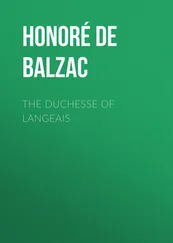Dino Dorothée - Memoirs of the Duchesse de Dino (Afterwards Duchesse de Talleyrand et de Sagan), 1831-1835
Здесь есть возможность читать онлайн «Dino Dorothée - Memoirs of the Duchesse de Dino (Afterwards Duchesse de Talleyrand et de Sagan), 1831-1835» — ознакомительный отрывок электронной книги совершенно бесплатно, а после прочтения отрывка купить полную версию. В некоторых случаях можно слушать аудио, скачать через торрент в формате fb2 и присутствует краткое содержание. Жанр: foreign_antique, foreign_prose, на английском языке. Описание произведения, (предисловие) а так же отзывы посетителей доступны на портале библиотеки ЛибКат.
- Название:Memoirs of the Duchesse de Dino (Afterwards Duchesse de Talleyrand et de Sagan), 1831-1835
- Автор:
- Жанр:
- Год:неизвестен
- ISBN:нет данных
- Рейтинг книги:4 / 5. Голосов: 1
-
Избранное:Добавить в избранное
- Отзывы:
-
Ваша оценка:
- 80
- 1
- 2
- 3
- 4
- 5
Memoirs of the Duchesse de Dino (Afterwards Duchesse de Talleyrand et de Sagan), 1831-1835: краткое содержание, описание и аннотация
Предлагаем к чтению аннотацию, описание, краткое содержание или предисловие (зависит от того, что написал сам автор книги «Memoirs of the Duchesse de Dino (Afterwards Duchesse de Talleyrand et de Sagan), 1831-1835»). Если вы не нашли необходимую информацию о книге — напишите в комментариях, мы постараемся отыскать её.
Memoirs of the Duchesse de Dino (Afterwards Duchesse de Talleyrand et de Sagan), 1831-1835 — читать онлайн ознакомительный отрывок
Ниже представлен текст книги, разбитый по страницам. Система сохранения места последней прочитанной страницы, позволяет с удобством читать онлайн бесплатно книгу «Memoirs of the Duchesse de Dino (Afterwards Duchesse de Talleyrand et de Sagan), 1831-1835», без необходимости каждый раз заново искать на чём Вы остановились. Поставьте закладку, и сможете в любой момент перейти на страницу, на которой закончили чтение.
Интервал:
Закладка:
Wessenberg writes to me from London that the Ministry there is cast down, anxious and embarrassed by its triumph, and fears that it may soon fall. I see that in England they are disquieted about the state of Germany. Here the Corps Diplomatique are complaining of Sébastiani's double game in respect of events on the Rhine. In a word, no one is pleased, no one is at ease. We live in strange times!
Paris, September 6, 1832. – M. de Talleyrand has letters which say that the coquetry at St. Petersburg was intended to detach England from her alliance with us, and that they had even gone so far as to propose to place Antwerp in the hands of the English. All this has miscarried and coldness has succeeded to civilities. All the difficulties about the Conference now come from Brussels, where the marriage 10 10 Leopold I., elected King of the Belgians in 1831, married in 1832 Louise, Princess of Orléans, daughter of Louis-Philippe, King of the French.
has turned everybody's head, and where they now think themselves able to force France's hand.
Paris, September 21, 1832. – It seems that M. de Montrond hopes to get Pondichery, and is very anxious to go there. Sébastiani's friends say he is quite restored to health since Bourbonne, and is steering adroitly among the difficulties of his ministerial career.
The King of the Netherlands is in an evil mood, and the King of the Belgians is no better. The Conference is flagging, and, they say, has much need of M. de Talleyrand to help it to recover its cohesion.
All the Cabinets are said to be much on edge about what is passing between Egypt and the Porte. Every one shrinks from the consequences which are imminent in the North, South, East and West. They are clearly foreseen everywhere, but no one has the courage to meddle with them.
Paris, September 23, 1832. – The horizon is gloomy all round. Strange events are happening in the East. The condition of Germany and Italy is precarious. The French Cabinet is disunited, there are complications in Portugal, and Holland is growing more and more obstinate. To all this must now be added the sudden death of Ferdinand VII., a civil war of succession between the partisans of Don Carlos and those of the little Infanta, the possibility of Spain interfering in Portugal, and consequently the appearance of France and England in the Peninsula.
Further, there is the change of ministry at Brussels, and the sudden departures of the Duc d'Orléans, Marshal Gérard, and M. le Hon for Belgium. Pandemonium reigns more than ever!
M. de Talleyrand is receiving many letters both from London and from Paris urging him to hasten his departure.
Paris, September 27, 1832. – The resurrection 11 11 In 1832 King Ferdinand VII. became so seriously ill that he was thought to be dead. Calomarde then joined the Carlists, and forced the dying monarch to sign a decree cancelling the declaration of 1830 abolishing the Salic Law in Spain.
of Ferdinand VII. is very mysterious. It is also very fortunate, for when there are so many complications, the disappearance of even one is something to be thankful for!
CHAPTER III
1833
Valençay, 12 12 Valençay, where the Duchesse de Dino had just gone, is situate in the Department of the Indre. The château and the park are magnificent, and the ornamental water is very fine. The house was built in the sixteenth century by the d'Étampes family, from the designs of Philibert Delorme. In 1808 and 1814 it served as the prison of Ferdinand VII. and the Spanish Princes when they were detained by Napoleon I. The Prince de Talleyrand, who had bought the property at the end of the eighteenth century, was very fond of the place and lived there a great deal.
October 12, 1833. – M. Royer-Collard passed part of the morning here. He was at once original and witty, serious and vivacious, showed much affection for me, and made himself very pleasant to M. de Talleyrand. He does not openly carp at the present situation, but it is not pleasing to him, and he speaks ill of it in his solitude.
M. de Saint-Aulaire writes from Vienna: "My summer holiday which I have been spending at Baden has not been disturbed by the meetings at Téplitz and Münchengraetz, 13 13 The three great allied powers – Austria, Prussia and Russia – held meetings in three successive years either at Téplitz or at Münchengraetz for joint deliberation on the European situation. There by a new secret compact they guaranteed to each other their respective possessions in Poland, whether against external aggression or internal revolution. They also considered the affairs of France and Italy, and the constant activities of Italian societies and refugees in French territory, which were then causing serious anxiety about the tranquillity of the Peninsula. It was finally decided that the Cabinets of Austria, Prussia and Russia should each send a separate note to the Government of King Louis-Philippe, urging a more careful surveillance of the revolutionary propaganda.
because I was not given anything to do, and because, for my part, I feel no anxiety about them. But M. de Metternich has just got back to Vienna; we must put our affairs in order, and my holiday is near an end. The measures considered advisable for Germany are apparently very sharp; were they otherwise the attempt would be futile. Will France be content to look on and do nothing? I think so, unless some independent sovereign cries for help in maintaining his independence. The King of Hanover would be a good leader in a movement of this kind, but if he will not come forward, I have no confidence in Prince Lichtenstein. I know that in England they think M. de Metternich has tricked us, and that he went shares with Russia in the Treaty of Constantinople of the 8th of July last. But I persist in maintaining that he was the dupe, not the accomplice. I hope I am right, not so much for my own self-satisfaction as because the game to play must vary according as the good understanding of Austria and Russia is apparent or real. Frederick Lamb told me yesterday in detail of the Duke of Leuchtenberg's campaign in Belgium. I had heard something of it from the rumours of the town, but not a word from the Cabinet, which has the bad habit of keeping us the worst informed of the diplomatists of any country."
Valençay, October 23, 1833. – The Duchesse de Montmorency is quite fresh on the subject of Prague, her eldest daughter having told her much about it. Charles X. himself took his two grand-children to their mother at Leoben with the precise object of preventing the Duchesse de Berry from coming to Prague; from Leoben it is said she will return to Italy. M. le Dauphin 14 14 Louis-Antoine, Duc d'Angoulême (1773-1844), eldest son of King Charles X., married during the emigration in 1799 his cousin Marie Thérèse Charlotte, daughter of King Louis XVI. and Queen Marie Antoinette, but had no children. After 1830 the Duc d'Angoulême ceded his rights to his nephew, the Duc de Bordeaux (Comte de Chambord), and retired into private life.
and Mme. la Dauphine refused to go.
They say that Charles X. is much broken, and the Dauphine is aged and very thin and nervous, always in tears. Certainly, however strong her character may be, her misfortunes have been such as to break the highest courage and the most masculine spirit. Beyond doubt she has been more persecuted by destiny than any character in history.
M. de Blacas is in supreme command of the little Court, and is more opposed than any one to the proposal that the Duchesse de Berry should settle there.
I have seen a letter from M. Thiers, who says, referring to his marriage: "The great moment is at hand. I am agitated, as is proper; and I am fonder of my young wife than is fitting at my age. This shows I was right to make up my mind at thirty-five rather than at forty, for then I should have been even more absurd. In any case it matters little; I can banish false shame, but there is one thing which I find insupportable, and that is to expose those who are dear to me to the insults and the malice of the world. For myself I am inured, but (great as is the necessity) I shall never become inured to the sufferings of those I love. The world must work its will; it would be foolish to wish that so huge a machine should alter its eternal motion to suit one's convenience."
Читать дальшеИнтервал:
Закладка:
Похожие книги на «Memoirs of the Duchesse de Dino (Afterwards Duchesse de Talleyrand et de Sagan), 1831-1835»
Представляем Вашему вниманию похожие книги на «Memoirs of the Duchesse de Dino (Afterwards Duchesse de Talleyrand et de Sagan), 1831-1835» списком для выбора. Мы отобрали схожую по названию и смыслу литературу в надежде предоставить читателям больше вариантов отыскать новые, интересные, ещё непрочитанные произведения.
Обсуждение, отзывы о книге «Memoirs of the Duchesse de Dino (Afterwards Duchesse de Talleyrand et de Sagan), 1831-1835» и просто собственные мнения читателей. Оставьте ваши комментарии, напишите, что Вы думаете о произведении, его смысле или главных героях. Укажите что конкретно понравилось, а что нет, и почему Вы так считаете.












